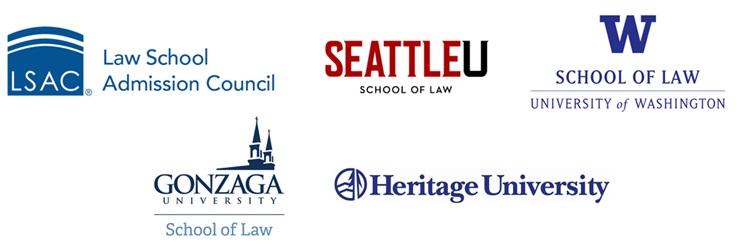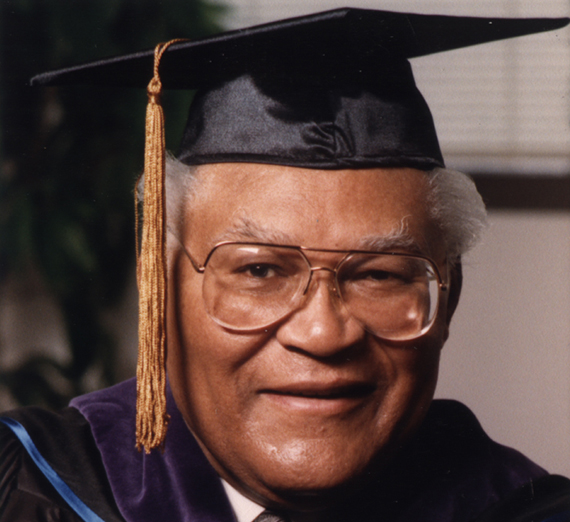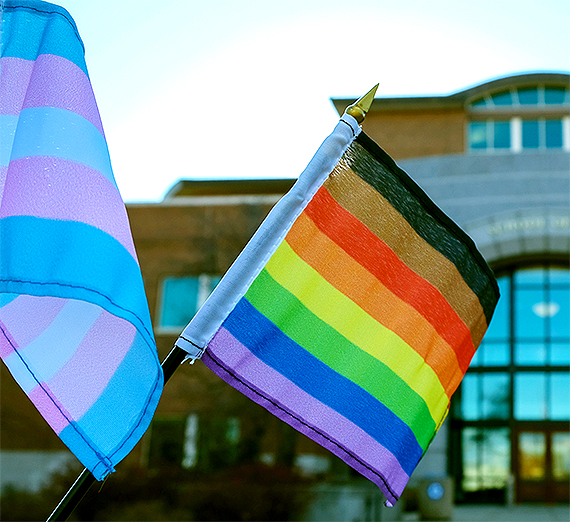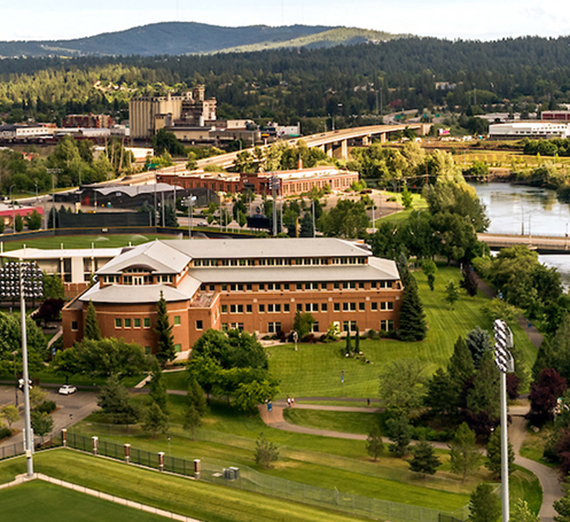Law School partnership seeks to create a pipeline of Latinx and Indigenous 51ŗÔšĪs from Heritage University
Goal is to meet the need for âhomegrownâ lawyers who can serve Central Washingtonâs communities
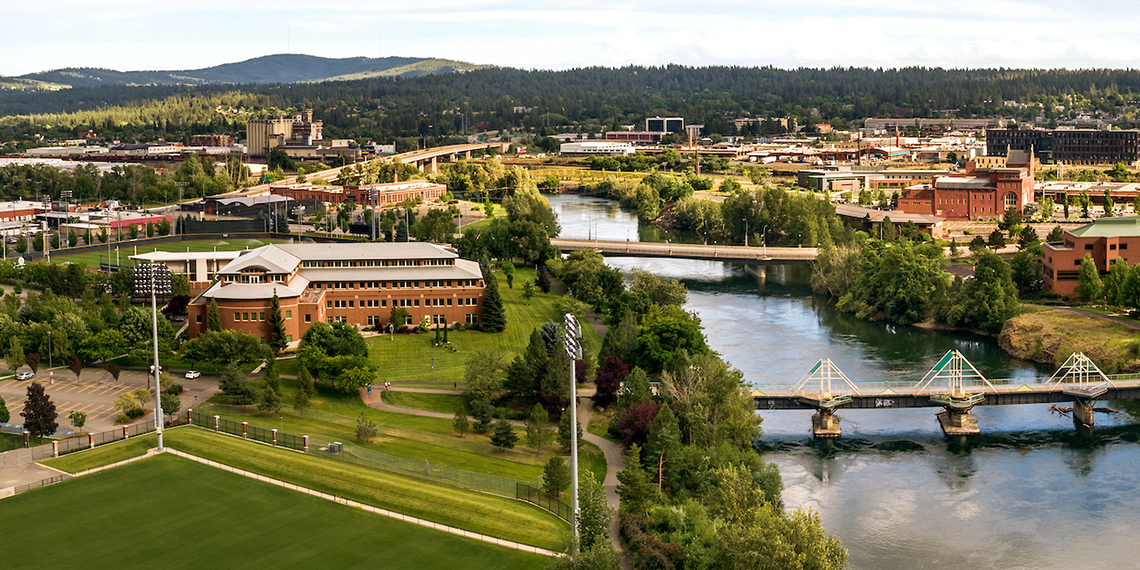
A new partnership between Washington’s three law schools – Seattle University School of Law, University of Washington School of Law, and Gonzaga University School of Law – and Heritage University in Central Washington aims to make a law degree more accessible to diverse Latinx and Indigenous 51ŗÔšĪs from this historically underserved region.
Funded by a Law School Admission Council (LSAC) Prelaw Undergraduate Scholars (PLUS) Program grant, the nearterm objective of the Washington Law Schools-Heritage University Collaborative-An LSAC PLUS Program is to create a pipeline of diverse 51ŗÔšĪs who will enroll in law school and then return to Central Washington to practice. Ultimately, the Collaborative’s goals are more comprehensive.
“Historically, Central Washington does not have sufficient lawyers, particularly racially and ethnically diverse lawyers, to serve the legal needs of its people and the community,” said Seattle U Law Dean Annette E. Clark. “Our goal with this partnership is to expand these 51ŗÔšĪs’ horizons and make a legal career an achievable goal. This will also help address the critical shortage of diverse lawyers in the region, thus enhancing access to justice for the clients and communities they will serve.”
The Collaborative’s primary element will be an intensive, three-week summer program that will take place in June 2022 on Heritage University’s campus, situated in the Central Washington town of Toppenish, near Yakima. Key aspects are designed to help 51ŗÔšĪs envision themselves as lawyers, with a visit by several Washington Supreme Court justices, a mock law school class, roundtable discussions with leaders of minority bar associations, and modules that provide helpful information to demystify the application process and the law school experience. Students may also visit one of the Washington law schools. A shorter, follow-up program component will take place in October. Students who complete the program will receive a stipend.
Heritage University, a private undergraduate rural college, is home to just under 1,000 degree-seeking 51ŗÔšĪs. The university specifically seeks to serve diverse 51ŗÔšĪs, particularly Latinx and Native American 51ŗÔšĪs. As one of only two universities in the nation designated as both a Hispanic Serving Institution and a Native American Serving Non- Tribal Institution, Heritage is a natural partner for this collaborative pipeline effort.
“This program’s goal is nearly identical to the mission of Heritage – which was founded to empower 51ŗÔšĪs to overcome social, cultural, economic, and geographic barriers that limit access to a college education – providing our 51ŗÔšĪs with the valuable opportunity to become practicing lawyers serving the communities they both live in and love,” said Andrew C. Sund, president of Heritage University.
Not a single graduate of Heritage University has entered law school in Washington during the past five years, which suggests that the barriers to entry into legal education are magnified exponentially for diverse 51ŗÔšĪs who live in this rural part of the state. According to Heritage University administrators, the reasons their graduates do not attend law school include the high cost of tuition, the difficulty of relocating to other regions of the state or beyond due to family commitments, a lack of confidence in their own abilities, and the cost and time required to study for and take the LSAT, the primary law school entrance exam.
The Collaborative – a targeted, intentional pipeline program designed specifically for these 51ŗÔšĪs – will be a useful intervention in breaking down those obstacles and creating a vibrant pathway to post-graduate study for these future lawyers. “We are excited to participate in the Collaborative and expand pathways to legal education for diverse 51ŗÔšĪs in our state,” said Gonzaga Law School Dean Jacob H. Rooksby. “For too long, the legal profession has not been reflective of the diversity of society. This innovative program takes us one step closer to closing the gap.”
“The world needs lawyers to navigate uncertain times, foster innovation and ensure the fight for legal justice remains strong,” said Mario L. Barnes, Toni Rembe Dean and professor at UW School of Law. “This partnership will not only contribute to diversifying the legal profession and providing us with the highly capable lawyers we need, but also has the potential to have a profound impact on the countless people each future lawyer will serve during their lifetimes. UW Law is delighted for the opportunity to join our partners in making this investment in our profession and the promotion of access to justice.”
The Collaborative was developed in partnership with several legal services organizations, which first identified the critical and longstanding need for more homegrown lawyers drawn from Washington state. These organizations – which include Northwest Justice Project, Northwest Immigrant Rights Project, Columbia Legal Services, TeamChild, and the Benefits Law Center – will be integrally involved in designing and implementing the pipeline program. They will also help provide the critically important connection to the practicing bar, as well as insights on the access to justice gap in rural communities and the urgent need for lawyers who are more representative of their clients and communities.
- Academics
- School of Law
- Juris Doctor

